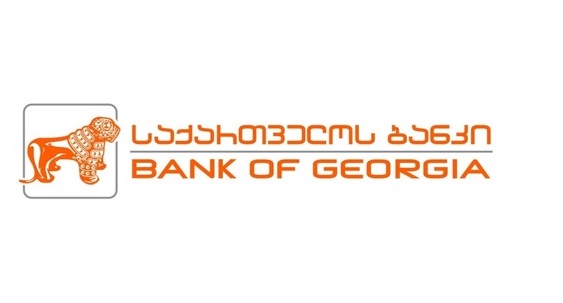How to register as an individual entrepreneur (IE) in Georgia, Including Remotely in 2025
The most popular way for foreign citizens to legalize their business or work in Georgia is by registering as an individual entrepreneur (IE) or Sole Proprietorship.
Advantages of doing business in Georgia:
- Ranked 7th in the world for ease of doing business (Doing Business index);
- Minimal taxation:
- 0% tax on turnover up to 100,000 GEL (micro business status);
- 1% tax on turnover up to 500,000 GEL per year (small business status);
- Fast registration with minimal documentation required.
There are several ways to register as an individual entrepreneur in Georgia:
- Remote registration – the easiest but most expensive option.
In Georgia, it is possible to open a business and bank account remotely through a representative. Georgia is one of the few countries where this is still possible.
You’ll need to find a legal service provider and pay for their services (usually $1000–1500 for full-service support) or ask a friend residing in Georgia to help.
For remote registration, you will need:- A notarized copy of your passport;
- A power of attorney authorizing someone to register you as an IE.
This topic is widely discussed in relocation chats such as: https://t.me/myreloc
- Semi-independent registration – simple and relatively inexpensive.
You need to be in Georgia and work with a private lawyer or legal firm to complete the registration.
Cost: from $400. - Fully independent registration – affordable and not too difficult.
This option requires more involvement, but allows for significant savings.
Documents required to register an individual entrepreneur in Georgia:
- A valid passport;
- A legal address in Georgia (must match your actual place of residence and should be confirmed by the property owner);
- A Georgian SIM card;
- An email address
Small Business Status for individual entrepreneur in Georgia:
- Applies to those with annual revenue up to 500,000 GEL.
- If your income exceeds 500,000 GEL, this does not automatically revoke your small business status, as long as the limit is not exceeded two years in a row.
- Important: It’s better to register before the end of the calendar month—the small business status will begin on the first day of the following month.
Example: if you register on July 2, 2025, all income up to August 1, 2025 will be taxed at the standard rate of 20%. - The tax period is monthly.
You must submit a tax declaration and make a payment each month.
Restrictions on types of activity:
The types of business activities not eligible for small business status are listed in Government Resolution No. 415. In general, small business status cannot be granted for the following:
- Activities that require a license or special permit;
- Businesses that involve significant capital investments (e.g., excise goods production);
- Currency exchange operations;
- Medical, architectural, legal, notarial, auditing, or consulting (including tax consulting) services;
- Gambling businesses;
- Recruitment and staffing services;
- Production of excisable goods.
Registration at the House of Justice
You will need the following:
- A passport;
- The property owner who will provide the legal address;
- A sum in GEL, depending on the type of registration chosen;
- A local SIM card and an email address not ending in .ru.
To register, you must visit the House of Justice in Tbilisi or Batumi, preferably in the first half of the day.
It’s best to arrange the legal address with the owner of the property you are renting. This usually costs 50–80 GEL, and the property owner must be physically present when submitting the documents.
If you do not have a registered address in Georgia, “helpers” near the House of Justice will offer assistance and fill out the required forms. This typically costs around 150–250 GEL. However, there are drawbacks to buying a legal address “on the street.” One common scheme involves claiming, after several months, that the address requires renewal (annually, quarterly, etc.), and if not paid, it will be revoked from the registry.
It’s important to clearly discuss the duration the address is provided for, and whether there will be any future demands for renewal. It’s even better to use services from registered companies found online, as they are more accountable — you can leave a complaint, and such companies (especially those with websites) tend to avoid these kinds of schemes.
Next, you will take a queue ticket and pay the registration fee, which is approximately:
- 60 GEL for standard registration (ready the next day);
- 110 GEL for expedited same-day registration.
There may be additional fees, such as 25 GEL for a certificate in English.
It’s best to visit the House of Justice with a helper who provides the registration address and speaks Georgian. The clerks accepting documents usually speak English.
Once your IE registration documents are accepted, you will receive an SMS with the result. The message will include your TIN (tax ID) and a password to access your online personal account, where your registration certificate will be available in both Georgian and English. The certificate will include your full name, ID, legal address, registration date, passport number, personal number, and date of birth.
Choosing an Activity Code for an Individual Entrepreneur
This step should be taken very seriously. During registration, no one will ask for proof of your business activity. However, in the event of an audit, all income-related documents will be requested and analyzed.
Under Georgian law, the tax authorities have the right to challenge your “small business” status and reassess taxes at the general 20% rate. This usually happens when there is a difference in how the entrepreneur and the tax authority interpret the chosen activity code.
For example, an entrepreneur may select the IT services code but in reality is providing IT consulting. Consulting activities are not eligible for the small business tax regime. In such a case, a tax audit could result in revocation of the small business status and the imposition of penalties and back taxes.
Additionally, “employment” relationships are not eligible for small business status. All details of the relationship between the IE and clients must be clearly stated in contracts and related documents. The effective statute of limitations for tax audits in Georgia is 3 years and 11 months.
IE Registration with the Tax Office
You will need:
- A passport;
- Around 20 GEL in cash (recommended);
- A phone with the SMS received from the House of Justice.
After receiving the SMS from the House of Justice, you must visit the Revenue Service (Tax Office). Before the visit, decide on your primary business activity. Activity codes can be found in the international classification handbook.
Then, you can first register on eservices.rs.ge, and afterward activate your account and apply for small business status (fee: approximately 20 GEL in cash).
The small business tax regime will apply to funds received after the 1st of the month following registration.
Simply put: if you register on the 20th of the month, the 1% reduced tax rate will only apply starting from the 1st of the next month. Until then, income will be taxed at 20%.
How to Open a Bank Account for an individual entrepreneur in Georgia
Opening a business account for an IE in Georgia is similar to opening a personal bank account. The only difference is that the account is given a “business” status. You can either open a new business account or assign business status to an existing personal account.
If you prefer, you can keep personal and business accounts separate to better manage your finances — but this is not strictly necessary. The authorities have visibility over all your accounts, so the main thing is to pay taxes correctly and on time.
One important note: the tax base is automatically calculated from all incoming funds to your business account. If unrelated income is received on your personal account, the tax authorities may raise questions.
To avoid this, you can receive personal payments to your personal account, which won’t be included in the taxable income.
Bank of Georgia
Bank of Georgia, the largest bank in the country, actively implements innovative technologies and offers a wide range of services for corporate clients. The bank is known for its favorable conditions and user-friendly digital solutions.
Fees for opening and maintaining a business account:
- Account opening: Free
- Monthly maintenance: 15–35 GEL (depending on the selected plan)
- Intra-bank transfers: Free
- Interbank transfers: 0.15% of the transfer amount, minimum 2 GEL
- Internet banking and mobile apps: Free
TBC Bank
TBC Bank (ranked #2) is one of Georgia’s leading banks, known for its advanced technology and high level of customer service. The bank actively develops digital products and offers convenient business services.
Fees for opening and maintaining a business account:
- Account opening: Free
- Monthly maintenance: 10–30 GEL (depending on the selected service package)
- Intra-bank transfers: Free
- Interbank transfers: 0.1% of the transfer amount, minimum 1 GEL
- Internet banking and mobile apps: Free
Liberty Bank
Fees for opening and maintaining a business account:
- Account opening: Free
- Monthly maintenance: 8–25 GEL (depending on the selected package)
- Intra-bank transfers: Free
- Interbank transfers: 0.2% of the transfer amount, minimum 2 GEL
- Internet banking and mobile apps: Free
Neo Banks
In Georgia, individual entrepreneurs can also use neobanks and payment services like Payoneer, PayPal, Wise, etc. Since the Georgian Revenue Service website allows tax payments using any foreign card (not just Georgian), a people can register as an IE remotely via power of attorney, open a business account in a neobank, and start working without coming to Georgia.
Georgia’s Implementation of CRS
As of September 2024, Georgia began implementing the Common Reporting Standard (CRS) — a global system for the automatic exchange of financial information. This is part of Georgia’s fulfillment of international obligations and applies to data from Georgian financial institutions for 2022 and 2023.
CRS (Common Reporting Standard) is a global framework for the automated exchange of financial data and includes the following stages:
- Financial institutions in participating countries identify the tax residency of their clients.
- Information on non-resident accounts (balances, income, tax identification numbers) is sent to national tax authorities.
- Tax authorities exchange this data with other countries under existing agreements.
In Georgia, accounts are classified as large (with a balance over $1 million) and small. The review of large accounts concluded by the end of 2023, and data for 2022–2023 was shared with international partners in September 2024. The review of small accounts continues and is expected to be completed by early 2025.
Under CRS, Georgia shares information on non-resident financial accounts, including balances, income (such as interest or dividends), and tax IDs with other CRS-participating countries. Likewise, Georgia receives information about its own tax residents who hold accounts abroad.
Important: If you’re a tax resident of Georgia, your information will not be shared with other countries. Georgian bank account information remains confidential for Georgian tax residents.
To prove your tax residency status, you need to obtain a Georgian Tax Residency Certificate, which is only valid for the current calendar year.
CRS is especially relevant for the following groups:
- Individuals who opened accounts in Georgian banks from 2022 to 2024 but actually live in other countries ;
- Individual entrepreneurs using Georgia’s preferential tax regime (1% for IEs) to optimize taxes;
- Georgian account holders who receive income from foreign clients but do not declare it in their country of residence.
Accounting Reporting for individual entrepreneurs in Georgia
What reports is an IE required to submit?
The reporting obligations of a sole proprietor in Georgia depend on their tax regime and business scale. The main types of reports include:
- Income Tax Declaration – mandatory for all IEs. For those under preferential regimes (small or micro business), a simplified form is available, which includes income information for the quarter.
- VAT Declaration – required only if the IE’s annual turnover exceeds 100,000 GEL. If this threshold is not reached, filing a VAT declaration is not necessary.
- Payroll and Social Contribution Report – mandatory for IEs who have hired employees.
Methods of Filing Reports
All IEs can file their tax declarations through the online portal RS.ge, provided by Georgia’s Revenue Service. This platform allows for:
- Submission of tax declarations for all types of taxes (income tax, VAT, employee income tax);
- Viewing tax debts and accrued amounts;
- Confirmation and online payment of taxes.
It is important to note that all reports must be submitted on time, as late submission is subject to penalties. It is recommended for accounting services to be taken. The online reporting system not only simplifies the process but also helps avoid delays caused by paper-based bureaucracy.
Penalties for Late Submission of Reports
Late submission of reports or failure to pay taxes in Georgia leads to financial penalties. Key penalties for IEs include:
- Failure to submit a declaration – 200 GEL for each missed declaration;
- Failure to pay taxes – interest penalty of 0.05% per day on the overdue amount;
- Inaccurate bookkeeping – fines depend on the severity of the violation and may include monetary penalties or other legal consequences.
Bookkeeping for individual entrepreneur
While IEs in Georgia are not required to maintain complex accounting systems, proper tracking of income and expenses is essential for successful business operations. IEs under preferential regimes (small or micro business) may keep records themselves or hire an accountant for more complex operations.
Key points to consider in bookkeeping:
- Document all transactions – every income and expense must be recorded with supporting documents, such as invoices, receipts, or payment confirmations.
- Maintain records regularly – even if reports are filed quarterly or annually, bookkeeping should be done continuously. This helps avoid mistakes in declarations and penalties for inaccurate data.
To minimize risks and avoid issues with tax authorities, entrepreneurs are advised to regularly monitor their turnover. For IEs under preferential regimes, it is crucial not to exceed the established limits:
- 30,000 GEL for micro business
- 500,000 GEL for small business
Exceeding these limits will result in a change of tax status and an increase in the tax burden.
Freezing an IE— Inactive Status
Freezing an IE in Georgia is a useful tool for those who wish to temporarily suspend business activities without losing the legal status of their business. In the personal tax account on the RS.ge portal, an IE can switch their status to inactive, indicating that they do not intend to file income reports, as no business activity is currently being conducted.
The IE remains legally open, and it can be reactivated at any time. In the business registry, the IE will still be shown as active.
If closing the IE through the Ministry of Justice, the registry will reflect that the business is closed.
If you decide to reopen an IE later, it will be registered under the same ID, which is used for all tax-related operations—both for business and personal purposes. The IE’s personal tax account will remain active even after closure but will be used in the capacity of an individual taxpayer.
What are the alternatives to registering an individual entrepreneur in Georgia?
Neighboring Armenia introduced significant tax benefits for IT specialists in 2025.
If you register an IE in Armenia with an IT specialization and switch to the simplified taxation system, the tax rate will be 1%, with an annual income limit that is nearly twice as high as Georgia’s small business limit—$301,000 per year (as of January 2025).
Other popular freelance specializations like advertising, marketing, and consulting are taxed at 10% in Armenia, which is less attractive. However, you can register an Individual entrepreneur in Kyrgyzstan, you can register an IE and work in these fields under a 4% tax rate, with no turnover limits.
For IT professionals, particularly software developers, Kyrgyzstan offers a special 2% rate under the unified tax system. This can be further reduced to 1% by joining the High Technology Park, while still allowing unlimited annual revenue.
In other words, high-earning IT specialists may find Kyrgyzstan to be the most tax-friendly jurisdiction for their business.


